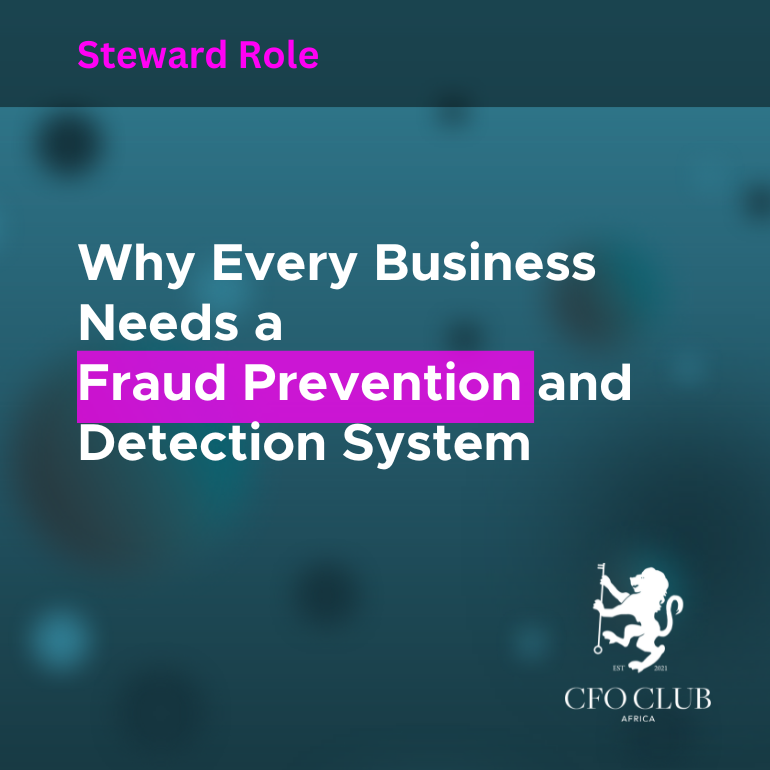Why Every Business Needs a Fraud Prevention and Detection System
Fraud is something no business likes to think about, but the reality is, it’s a risk that every organisation faces. Whether it’s an employee fudging expense claims, a supplier inflating invoices, or cybercriminals targeting your systems, fraud can happen anywhere. And when it does, the damage can go far beyond financial losses. It can shatter trust, harm your reputation, and even jeopardise the future of your business.
So, how do you protect your business from this kind of threat? The answer lies in building a fraud prevention and detection system. Think of it as putting a lock on your doors, installing a security camera, and having a plan for what to do if someone tries to break in – except this system protects your organisation’s finances, data, and integrity.
What Is a Fraud Prevention System, and Why Do You Need One?
At its core, a fraud prevention system is a set of tools, processes, and policies that work together to stop fraud before it happens or catch it early if it does. It’s about being proactive and staying one step ahead of anyone looking to exploit your business.
The benefits are huge. First and foremost, it protects your bottom line. Fraud can cost a business thousands, even millions, of dollars. And that’s not counting the time and resources spent cleaning up the mess afterward. A good system helps you avoid those losses.
But it’s not just about money. A solid fraud prevention system also builds trust. Customers, investors, employees, and partners all feel more confident when they know your business takes fraud seriously. It shows that you’re committed to doing things the right way – and that kind of reputation is invaluable.
And let’s not forget compliance. Many industries have strict rules about fraud prevention. Failing to meet those standards can lead to fines, legal trouble, and even the loss of licenses. A proper system ensures you stay on the right side of the law.
How Does a Fraud Prevention System Work?
Building a fraud prevention system might sound complicated, but it doesn’t have to be. It’s about putting common-sense measures in place to protect your business. Here’s how it works:
First, you need to make it clear that fraud isn’t acceptable in your organisation. This starts with having strong policies in place. For example, a code of conduct that outlines what’s expected of employees, or rules about how conflicts of interest should be handled. Everyone in your business – from entry-level staff to senior leaders – should know these policies inside and out.
Next, it’s about keeping an eye on things. This means setting up checks and balances so that no one person has too much control. For instance, if one person approves a payment, someone else should process it. Or if an employee submits an expense claim, their manager should review and approve it.
Technology plays a big role, too. These days, there are tools that can monitor your transactions and flag anything that looks unusual – like duplicate invoices or payments to unknown vendors. Think of it as having a watchful eye on your finances 24/7.
And then there’s the human element. Employees are often the first to notice when something doesn’t seem right. That’s why it’s so important to create a culture where people feel comfortable speaking up. Whether it’s an anonymous hotline or an open-door policy, give your team a way to report concerns without fear of retaliation.
What Happens If Fraud Is Detected?
No system is perfect, and fraud can still happen even with the best controls in place. That’s why you need a plan for dealing with it. This should include steps for investigating the issue, notifying the right people, and taking action to prevent it from happening again. It’s not just about solving the problem – it’s about learning from it.
For example, if you discover that a supplier has been overcharging you, you might renegotiate the contract, switch to a new supplier, or put stricter approval processes in place for future invoices. The goal is to close the gap that allowed the fraud to occur in the first place.
Why Investing in Fraud Prevention Is Worth It
At first glance, building a fraud prevention system might seem like an extra cost or hassle. But when you consider the alternative – the financial losses, the reputational damage, the stress – it’s clear that the investment is worth it.
A strong system doesn’t just save you money by stopping fraud. It also makes your business more efficient. Automating processes like transaction monitoring or approvals means less time spent fixing errors and chasing down missing information. And when your employees know they’re working in a safe and ethical environment, they’re more engaged and motivated.
Most importantly, a good fraud prevention system protects the future of your business. It helps you weather the unexpected and keeps your organisation on a path of growth and success. Because at the end of the day, protecting what you’ve built is one of the smartest moves you can make.
Take the First Step
Fraud isn’t going away – but with the right system in place, you can stay ahead of it. Start by understanding where your business is most vulnerable. Put controls in place, train your team, and invest in tools that help you monitor and detect fraud. And remember, this isn’t just about avoiding losses. It’s about building a stronger, more trustworthy organisation.
The time to act is now. Your business, your employees, and your stakeholders deserve it.

